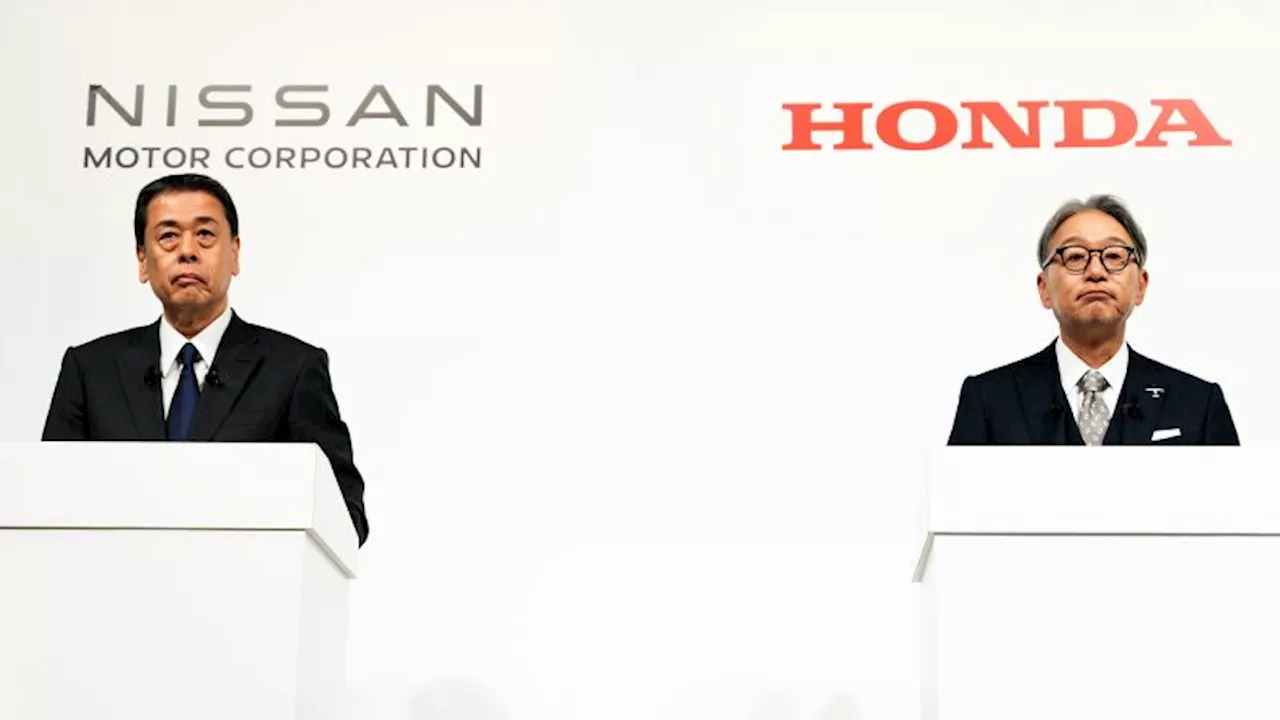Nissan and Honda have reportedly abandoned merger talks that would have created the world's third-largest automaker. The decision follows Nissan's financial struggles and concerns about the company's ability to turn around its fortunes. While both companies are still in discussions, the potential merger appears to be off the table.
Nissan is still continuing various discussions with Honda , the carmaker said Wednesday in response to media reports that it is set to abandon merger talks with its larger rival. The two Japanese companies announced in December that they would conduct negotiations over the following six months on a possible merger, a deal that would have created the world’s third-largest automaker and given them more resources to compete with a growing threat from Chinese carmakers.
Japan’s Kyodo News agency and Nikkei newspaper, as well as Reuters, have reported, citing sources, that Nissan is set to end those talks. Trading in shares of Nissan was halted in Tokyo on the reports with shares down nearly 5%. Shares of Honda closed trading in Tokyo up 8% on the news. In a statement on its website, Nissan noted media coverage “stating that our company has withdrawn the basic agreement for the merger with Honda” but said that “this matter has not been announced by our company.” “Based on the memorandum of understanding signed on December 23 last year, Honda and our company are in the stage of advancing various discussions … and we plan to establish a direction and make an announcement around mid-February,” Nissan added. Nissan has not responded to a CNN request for comment. CNN has also reached out to Honda. Honda recently sounded out Nissan about becoming its subsidiary, Kyodo News said Wednesday, citing sources familiar with the matter. But the proposal met with “vehement opposition” within Nissan, the sources noted. Nissan’s restructuring plan has failed to convince Honda that the struggling carmaker is on track to turn around its fortunes, a key condition for the planned merger, according to the sources. A third, smaller Japanese automaker, Mitsubishi, which is already in an alliance with Nissan, was also due to participate in the merger talks. The combined company, if created, would have trailed only Toyota and Volkswagen in global sales. Nissan has struggled since the collapse of its alliance with Renault and faced severe financial problems that put it in desperate need of a larger merger partner. Nissan’s profits in the six months ending in September plunged 94% compared with the same period in 2023, as the company lost money on auto operations and reported only a narrow profit due to its financing business. In response, Nissan announced it would cut its manufacturing output by 20%, laying off 9,000 workers as a result. It also slashed its forecast for full-year operating profit by 70%. Some analysts had speculated Nissan could face bankruptcy as soon as 2026 when it has a huge amount of debt coming due. Sharing EV development costs Beyond the financial problems faced by Nissan, the company, as well as Honda and other legacy automakers, face huge research and development costs as they seek to transition from traditional gasoline-powered vehicles to electric vehicles to comply with tougher environmental regulations around the world. Nissan has had some success with its own EV offerings, such as the Nissan Leaf, which is something that it was bringing to the table in merger discussions, despite its financial problems. Those EV development costs create a powerful incentive to examine mergers as a way of sharing those costs. “Legacy auto companies that don’t find new partners must face the prospect of being smaller companies with higher capital expenditures, and research and development costs per (every vehicle sold),” wrote Morgan Stanley auto analyst Adam Jonas in a note in December when Nissan and Honda first disclosed that they were in talks on a possible combination. “Moreover, amidst a potentially broader consolidation era, the ones who chose not to participate effectively ‘get smaller.’ We’re entering a new phase of the auto industry where the strategies for scale and cost leadership put the focus on cooperation and potential changes in scope.” While the Trump administration has announced the intention to pull back on those tougher US emission regulations, many other markets and some US states, such as California, have announced plans to ban the sale of new gasoline-powered vehicles in the future. That will make depending on profits from internal combustion engines riskier. But EVs have not been profitable for most automakers, other than Tesla and some in China. “The harsh reality is the (EV) investments are not paying for themselves yet, and it’s going to take longer than they had planned,” said Jeff Schuster, global vice president of automotive research for GlobalData, in an interview last month with CNN. Rocky history of auto mergers Mergers in the auto industry are nothing new. They have taken place since the acquisition of various brands formed General Motors (GM) in the first decade of the 20th century. But they sometimes have trouble succeeding in bringing together different partners. German automaker Daimler-Benz agreed to buy Chrysler Corp. in 1998 only for the combined group to be split up a decade later
Auto Industry Mergers Nissan Honda Financial Struggles Electric Vehicles EV Development
United States Latest News, United States Headlines
Similar News:You can also read news stories similar to this one that we have collected from other news sources.
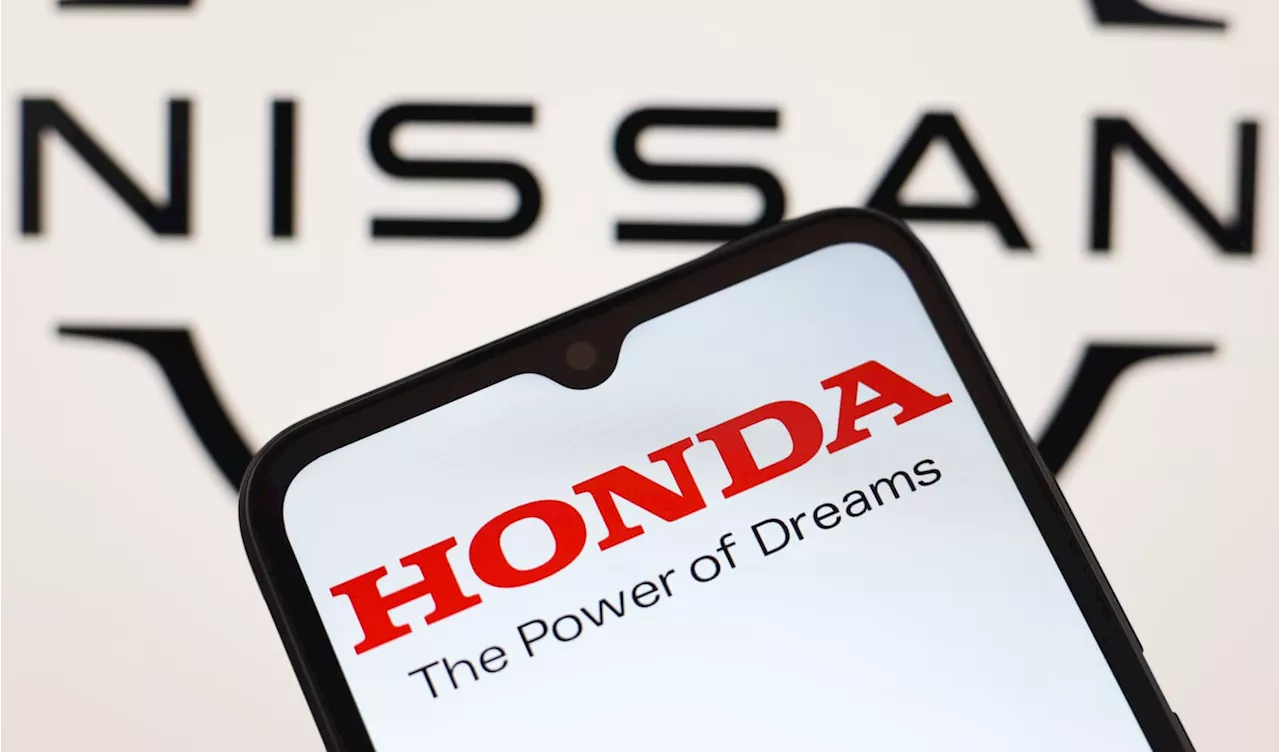 Nissan and Honda shares rise as report says automakers may call off merger talksHonda and Nissan are considering calling off their merger talks, Japan’s Asahi Shimbun reported on Wednesday citing several sources.
Nissan and Honda shares rise as report says automakers may call off merger talksHonda and Nissan are considering calling off their merger talks, Japan’s Asahi Shimbun reported on Wednesday citing several sources.
Read more »
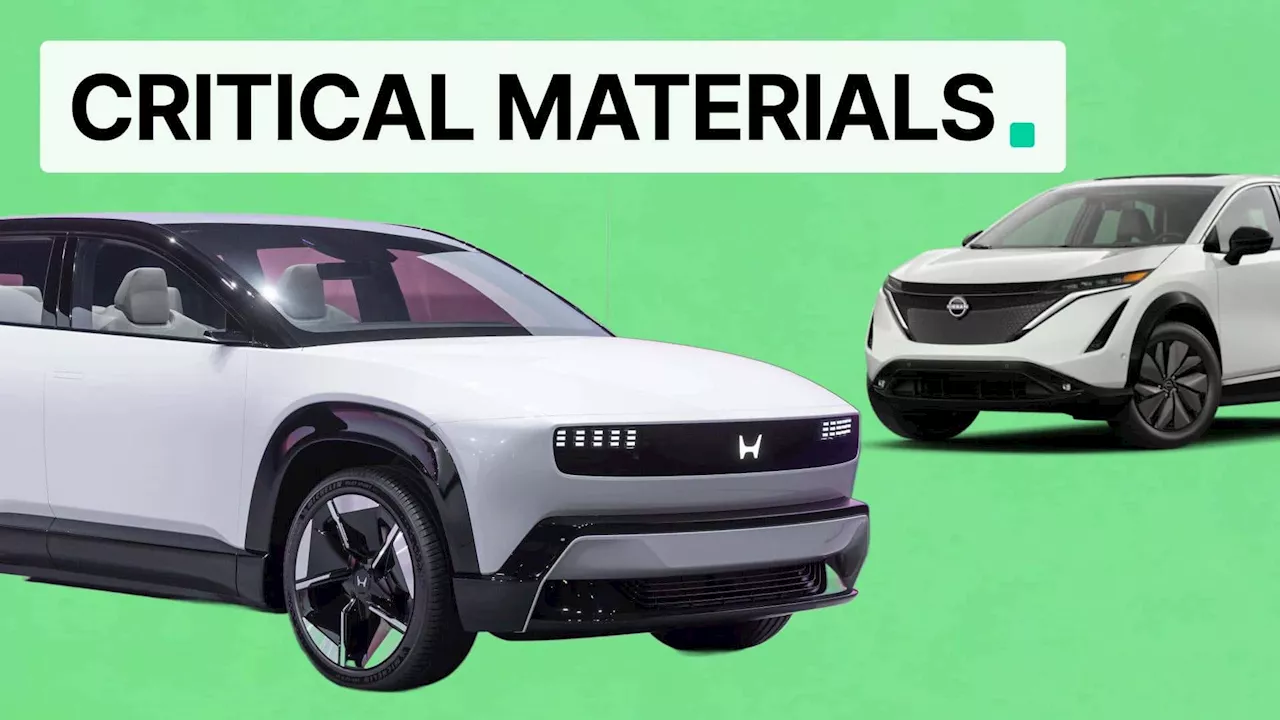 Honda-Nissan Merger: Key Questions and Details to WatchThis article discusses the potential Honda-Nissan merger, highlighting key unanswered questions and factors to consider.
Honda-Nissan Merger: Key Questions and Details to WatchThis article discusses the potential Honda-Nissan merger, highlighting key unanswered questions and factors to consider.
Read more »
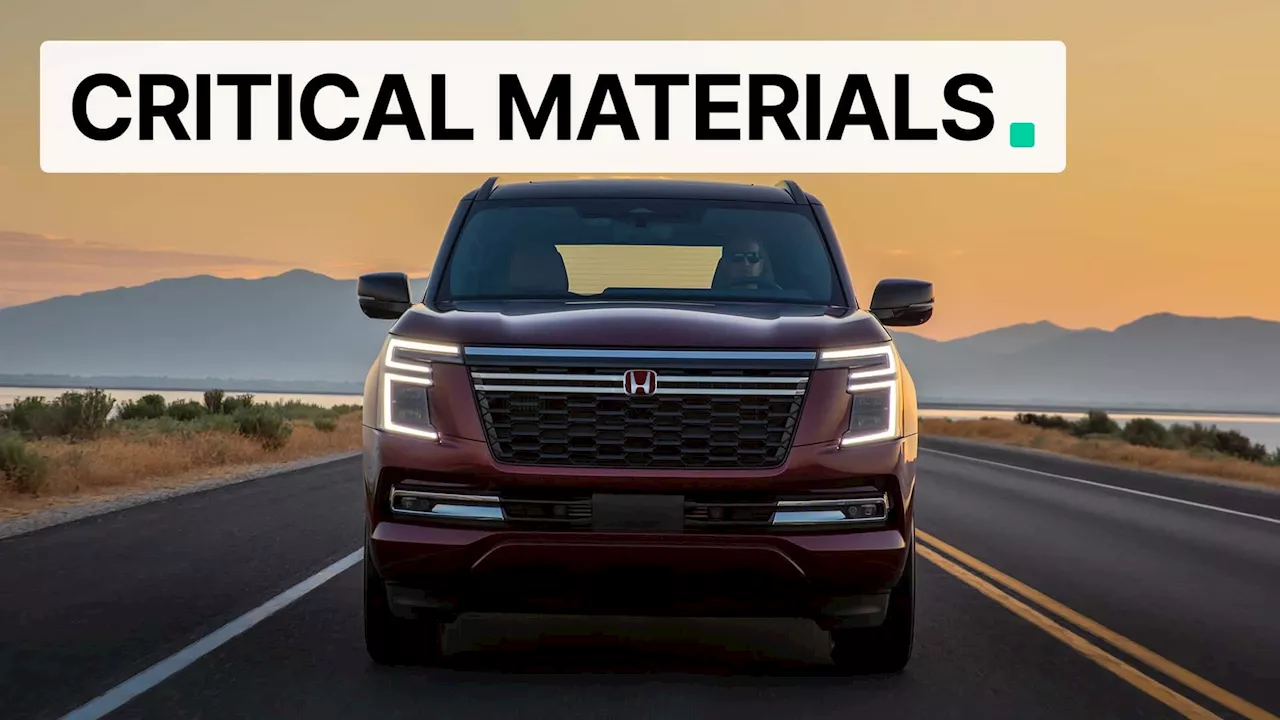 Honda's Plans for Nissan: Trucks, Tech, and a Shared FutureHonda's merger talks with Nissan have shed light on their strategy. Honda aims to leverage Nissan's expertise in large vehicles to expand its U.S. market share and plans to collaborate on development costs, including Honda's new operating system, Asimo OS. The news also covers the auto industry's scramble to avoid tariffs and China's expected stall in EV exports.
Honda's Plans for Nissan: Trucks, Tech, and a Shared FutureHonda's merger talks with Nissan have shed light on their strategy. Honda aims to leverage Nissan's expertise in large vehicles to expand its U.S. market share and plans to collaborate on development costs, including Honda's new operating system, Asimo OS. The news also covers the auto industry's scramble to avoid tariffs and China's expected stall in EV exports.
Read more »
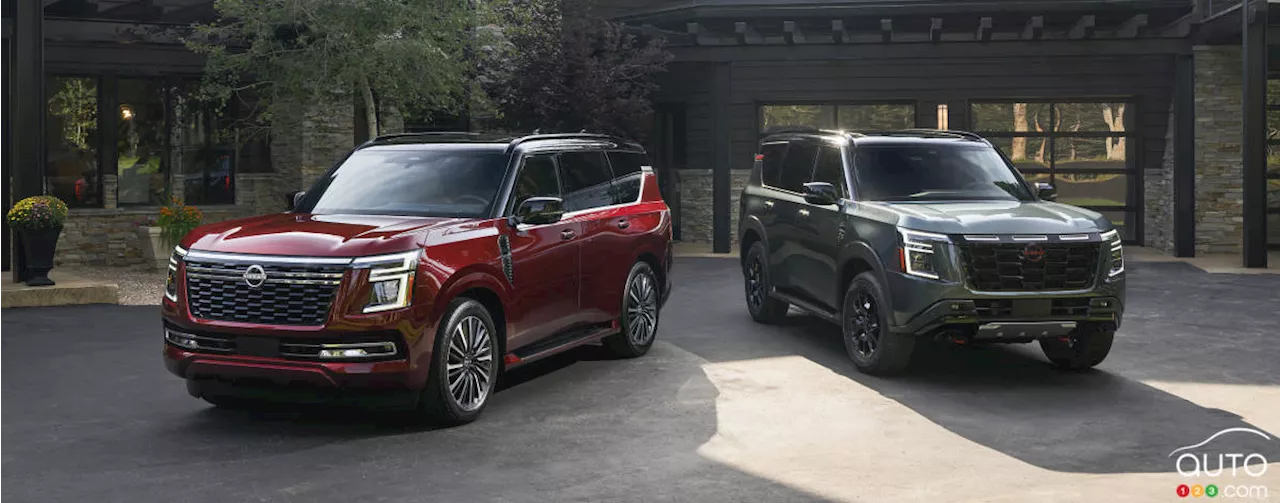 Honda and Nissan in Talks for Potential PartnershipHonda and Nissan are reportedly in discussions for a possible partnership, with talks set to intensify in the coming months.
Honda and Nissan in Talks for Potential PartnershipHonda and Nissan are reportedly in discussions for a possible partnership, with talks set to intensify in the coming months.
Read more »
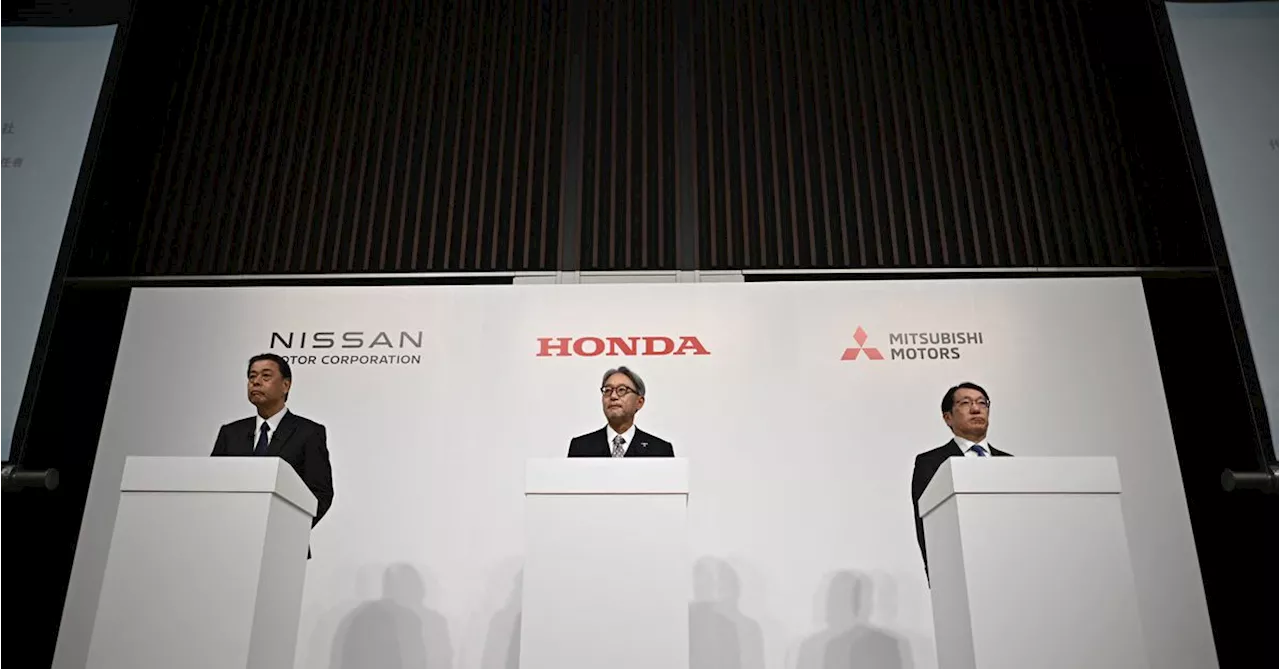 Why Honda is merging with Nissan: factories, SUVs, and ChinaAt CES, Honda executives explained why the company is merging with Nissan, including new details about hybrid SUVs and US factory capacity.
Why Honda is merging with Nissan: factories, SUVs, and ChinaAt CES, Honda executives explained why the company is merging with Nissan, including new details about hybrid SUVs and US factory capacity.
Read more »
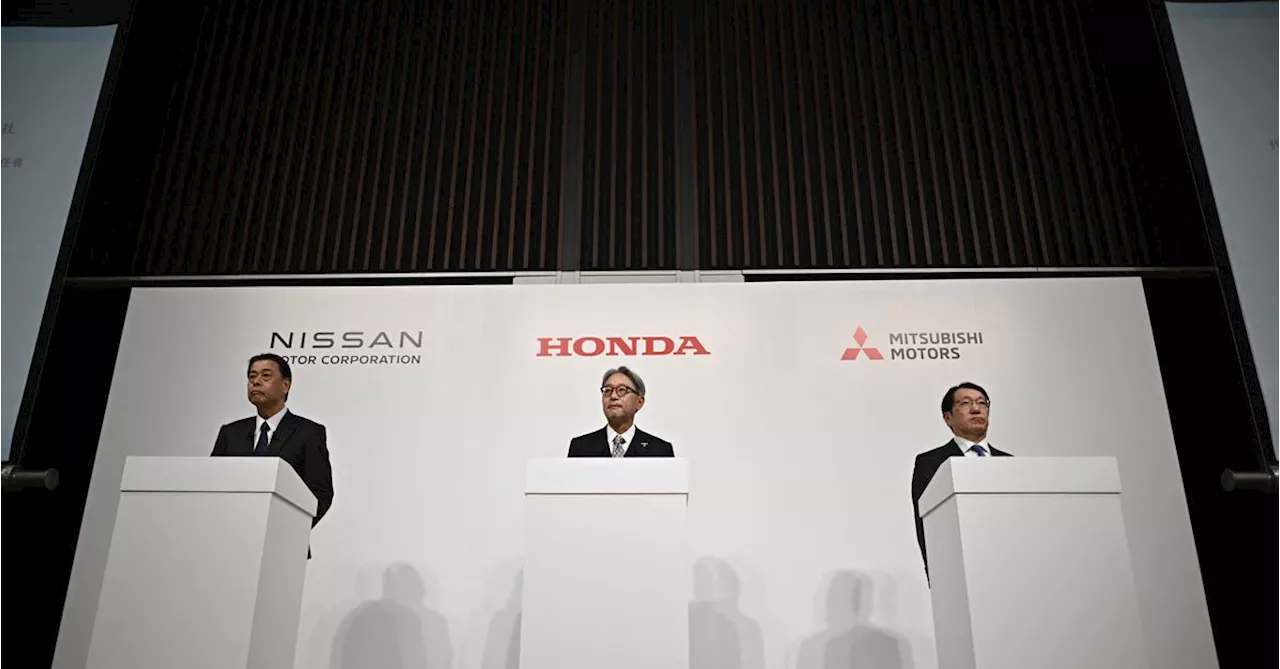 Honda and Nissan Merger Could Reshape the Auto IndustryHonda and Nissan executives discussed the potential merger, highlighting the need to compete with China's rising dominance in the EV and autonomous driving market. The merger aims to reduce costs, leverage resources, and accelerate the development of software-defined vehicles (SDVs). Honda seeks Nissan's large SUVs and underutilized factories, while Nissan's struggles present an opportunity for Honda to utilize excess capacity.
Honda and Nissan Merger Could Reshape the Auto IndustryHonda and Nissan executives discussed the potential merger, highlighting the need to compete with China's rising dominance in the EV and autonomous driving market. The merger aims to reduce costs, leverage resources, and accelerate the development of software-defined vehicles (SDVs). Honda seeks Nissan's large SUVs and underutilized factories, while Nissan's struggles present an opportunity for Honda to utilize excess capacity.
Read more »
